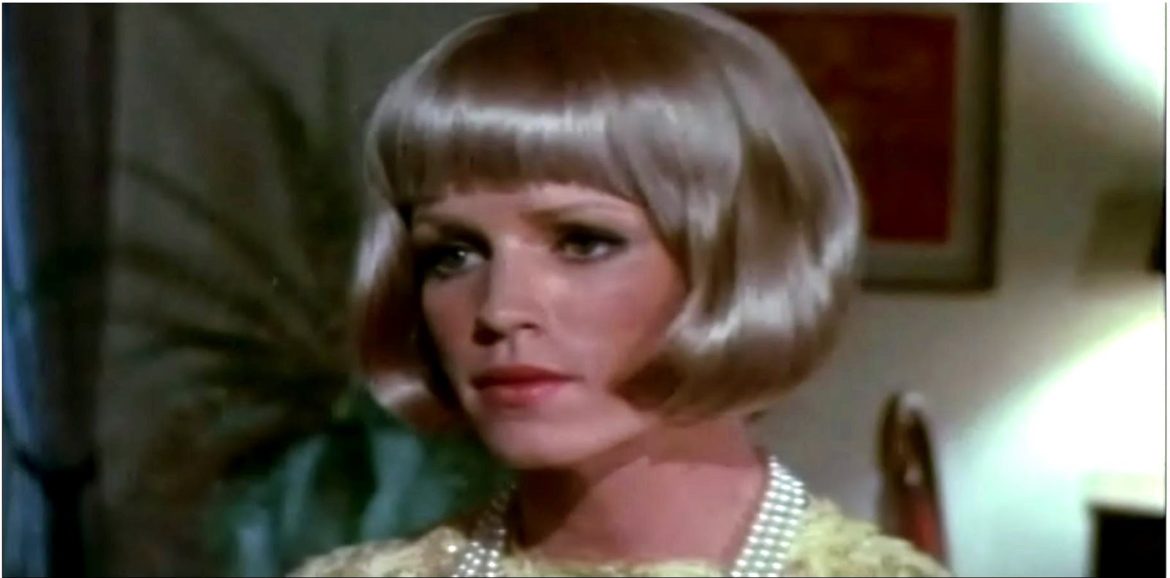Many years when I managed a movie theater in Provincetown, Mass. we ran a special film festival to go along with Fantasia Fair: a yearly October transgender convention where former World War II pilots in drag would arrive (with their wives in tow) wearing wigs and women’s shoes the size of gun boats. The film fare we screened included howlers like The Christine Jorgensen Story; and, my favorite: Dinah East, a 1970 film about a famous 50s movie star who dies and, when stripped down by a horny mortician, is discovered to be a man. I never ever forgot it.
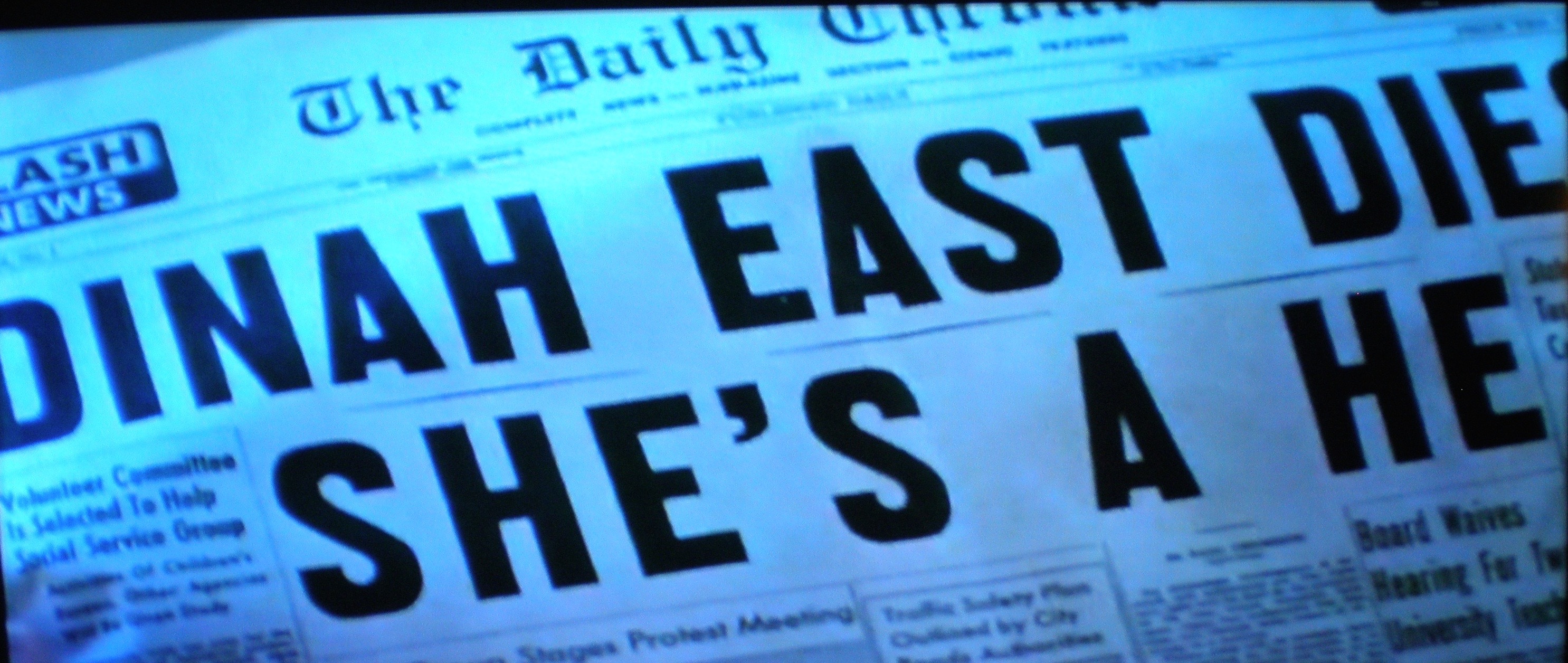
Directed by Gene Nash the movie is presented as a series of flashbacks from the various people in Dinah’s life reacting to the news of her/his death. The cast of Dinah’s nearest and dearest includes the fabulous lesbian costume designer Daniela (played by Andy Warhol superstar Ultra Violet); the closeted gay actor Tony Locke (Ray Foster) who once dated her; her business manager Alan Sloan (Andy Davis); her secret lover, a former boxer turned personal chauffeur Tank Swenson (Matt Bennett); and her adopted son Jeff (Reid Smith) who exclaims: “I don’t care what she was- I loved her!” It’s Citizen Kane in drag, only with a cheater instead of a sled.
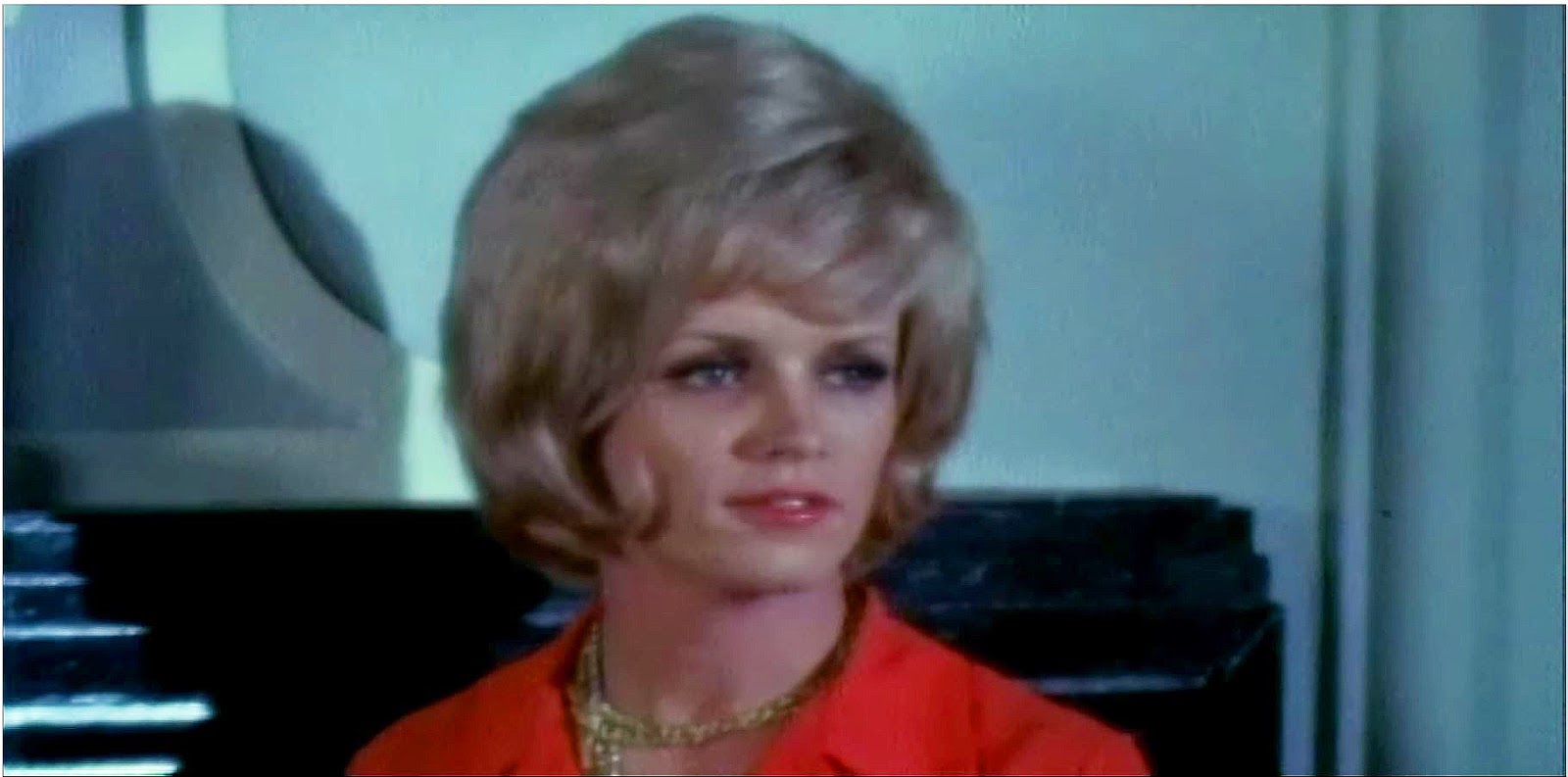
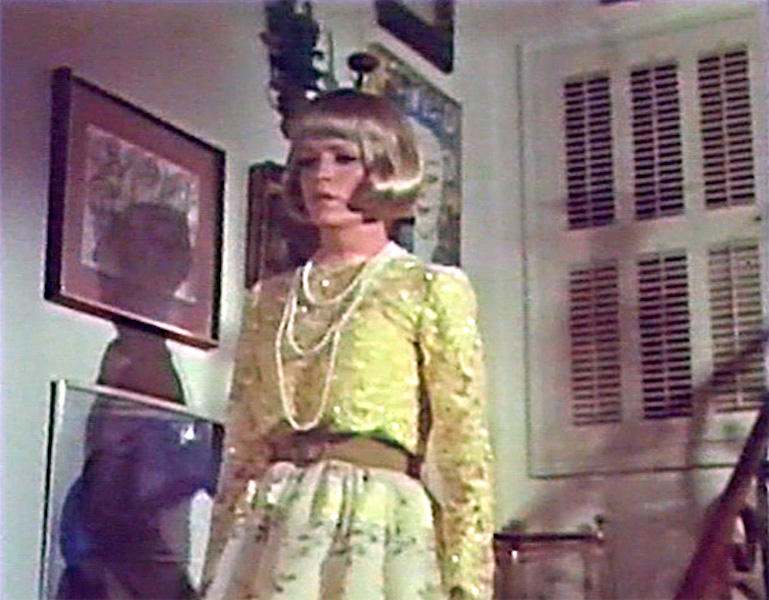
Dinah, played by Jeremy Stockwell, is not all that convincing as a woman, which is half the fun. Lots of random male frontal nudity, a hilarious “Raindrops Keep Falling On My Head” musical interlude with Dinah and Tank frolicking on bicycles, and a scene in a gay bar (with stark naked men frugging in suspended cages) make for a fabulously deranged 90 minutes.
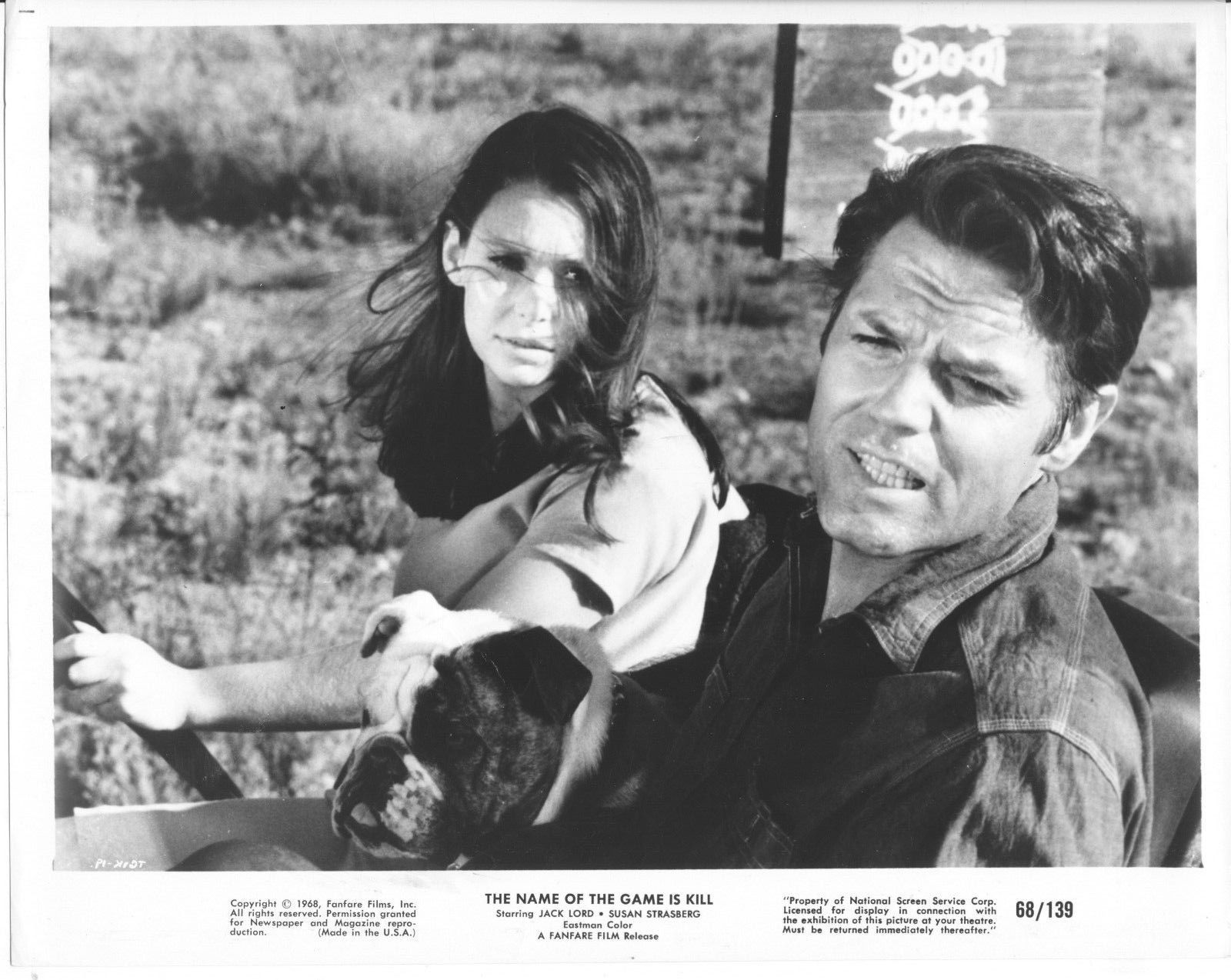
Another oddball film in a similar theme is The Name Of The Game Is Kill!, and unfortunately just saying that spoils the movie surprise if you haven’t seen it, so I apologize. The film is a whacky 1968 psycho drama starring Hawaii-Five-O’s Jack Lord as a hitchhiking Hungarian named Symcha Lipa (you have to hear Jack Lord’s accent to believe it- he sounds like somebody doing a bad Andy Kaufman on Taxi). Our Slavic hero meets a weird girl (Susan Strasberg) in the desert and agrees to follow her home to a filling station where she lives with her two sisters- the openly hostile Diz (played ferociously by Collin Wilcox Paxton) and flirtatious sex kitten Nan (Tisha Sterling), who enjoys setting cats on fire.
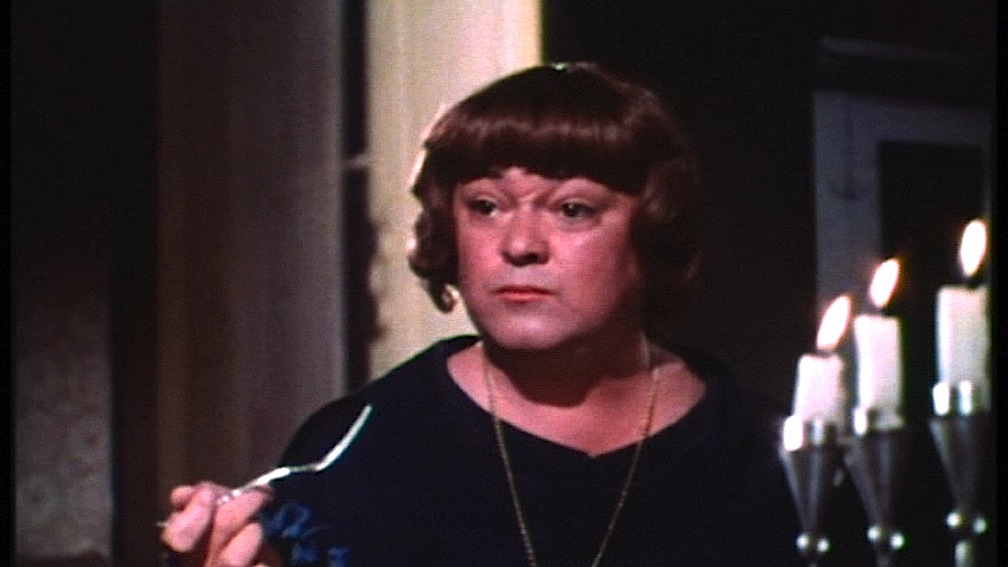
And, oh yes, one can’t forget their loving mom (played by female impersonator T. C. Jones). Turns out these gals have a habit of picking up strangers, only to have the men turn up missing later on. Directed by Gunnar Hellstrom with a screenplay by Gary Crutcher, it’s a weird movie I’ve hunted for years after watching it with blurry disbelief at 4 in the morning on television.
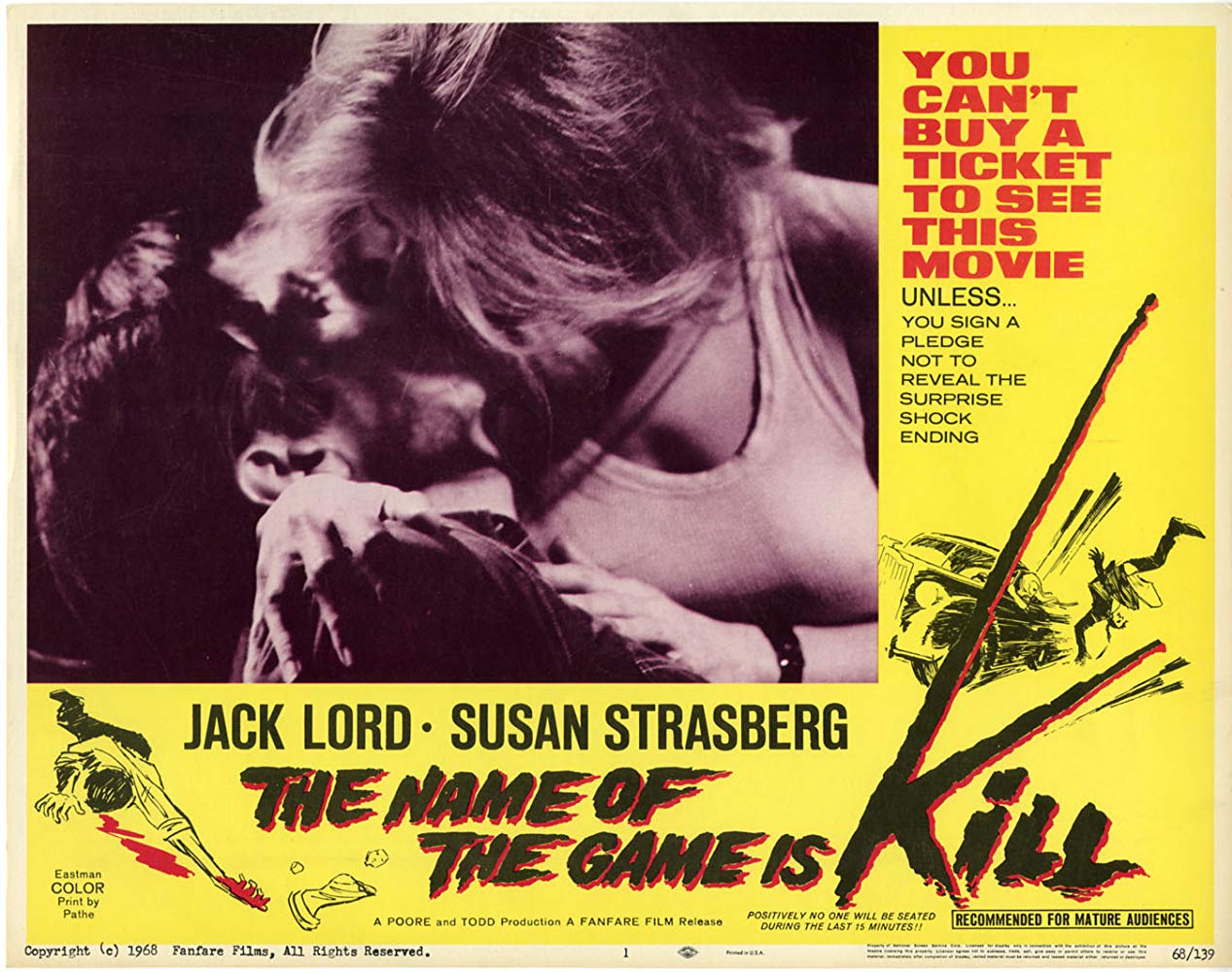
I even own the one sheet which screams: “You Can’t Buy A Ticket To See This Movie Unless You Sign A Pledge Not To Reveal The Surprise Shock Ending!”
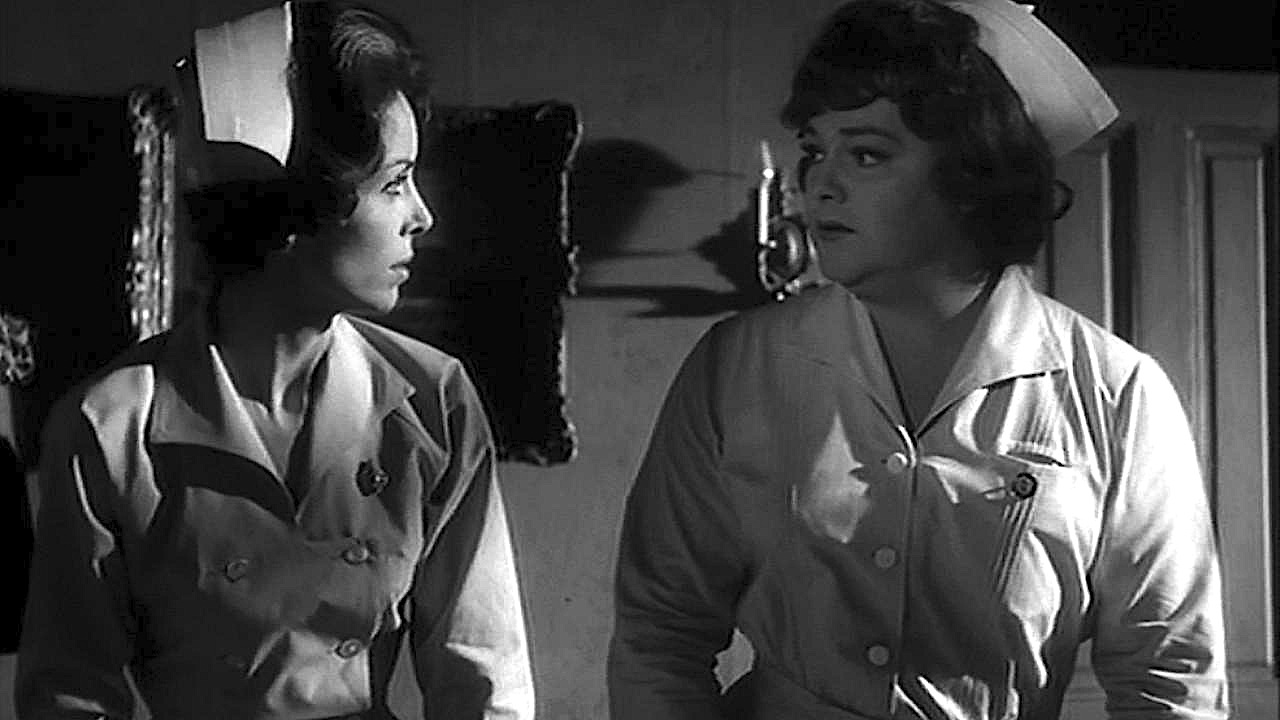
T. C. Jones started his career on Broadway and began a career as an impersonator in 1946. He was acclaimed for his impressions of Tallulah Bankhead, Edith Piaf, Katharine Hepburn, Claudette Colbert and Bette Davis. He cut two records and appeared on television- most memorably in a creepy Alfred Hitchcock Presents hour episode An Unlocked Door in which a bunch of nurses are trapped in a spooky mansion during a storm while a persistent killer is trying to sneak inside. It scared the crap out of me when I was 10 years-old, and I watched it recently and was delighted that it still is creepy. T.C. Jones also appeared with Jayne Mansfield in Promises, Promises (1963) and alongside Mamie Van Doren in Three Nuts In Search Of A Bolt (1964) and The Monkees’ trippy Head (1968).
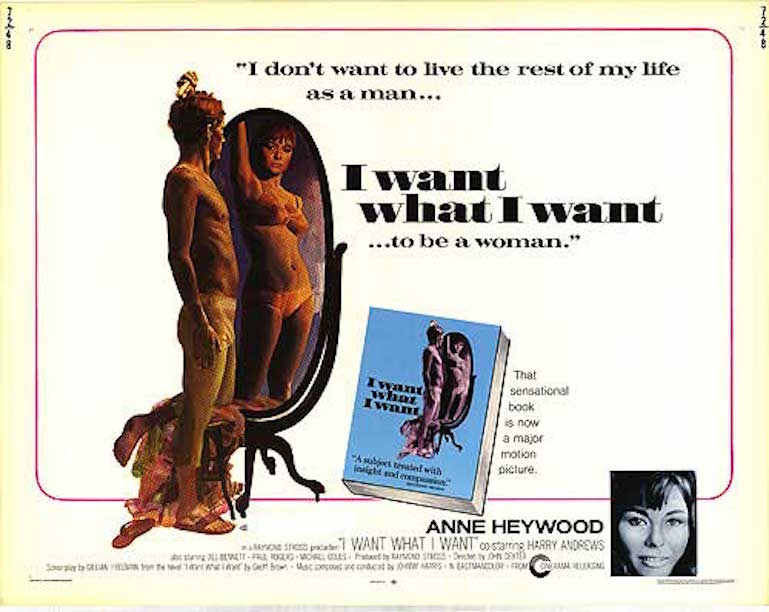
Why don’t more people know about I Want What I Want, a strange 1972 movie starring Anne Heywood as a man who wants desperately to become a woman? True, it would take until 2005 for an actress like Felicity Huffman to win awards for her role as a transsexual in Transamerica. Is I Want What I Want the milestone of transgender cinema that some online critics have crowned it? Probably not, but it’s a pretty fascinating film and another interesting acting choice for actress Anne Heywood. Born Violet Pretty (a drag queen name for sure), Heywood was Miss Great Britain in 1950 at age 17, and trained at the London Academy Of Music And Dramatic Art. She began in films with sweet girl parts before pushing the envelope with The Fox (1967), a daring film (at the time) about lesbianism based on D. H. Lawrence’s novella. The Fox was about as symbolically heavy-handed as possible, but Heywood and Sandy Dennis both gave impassioned performances and the movie did well at the box office because of the subject matter.
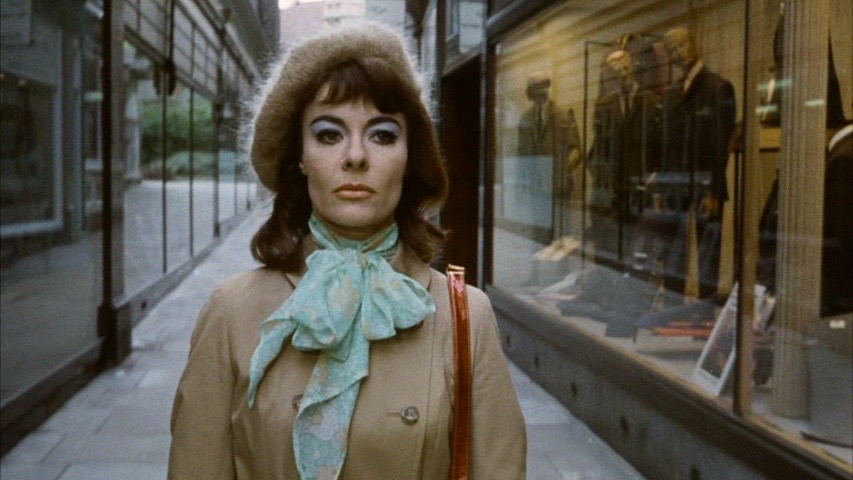
But Heywood seemed to seek out risk-taking projects, such as the startling The Lady Of Monza (aka The Nun & The Devil) and then she got the rights to the Geoff Brown book I Want What I Want which was published in Britain in 1966. The 1968 American paperback luridly described on the cover: “A novel of obsessive desire- the nightmare world of the transsexual,” but it’s actually a serious undertaking about the troubled dualist nature of Roy Clark, who becomes Wendy. Not much is known about Geoff Brown, his only other novel My Struggle, was about a schizophrenic. You can see what the appeal was for Heywood to sink her teeth into such ground-breaking subject matter. The director chosen for the film was John Dexter, a Tony-winning theater director (Equus, M Butterfly), and even one of the first plays I ever saw on Broadway, the rollicking Black Comedy starring Geraldine Page. Dexter is quoted as saying about himself: “I am known to be difficult, British, homosexual and expensive and whilst I can, with modified rapture, admit to the first three charges, the last is deeply wounding.”
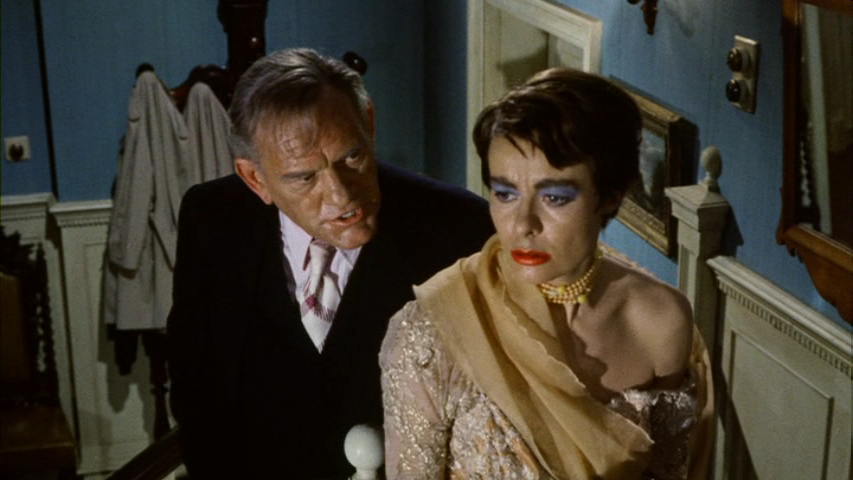
In the film, Heywood (in drab male drag) looks sadly out of place as an estate agent who watches all the pretty girls strolling by in their bad 70s fashion. Living with his father, the “Major” (Harry Andrews), he’s caught one night dressed in full drag in his dead mother’s clothes and given a real thrashing. “Are you a homosexual?” his horrified father asks. “No,” Roy wearily replies, and then with smeared lipstick on the staircase says, “God made man in his image- and he blew it!”
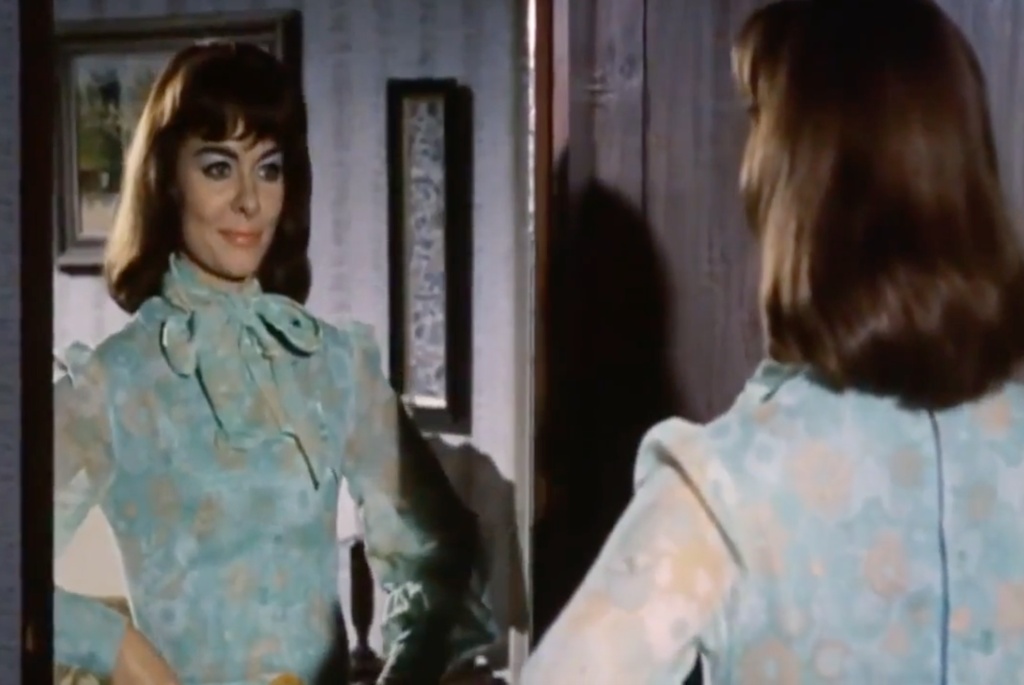
Roy flees home and lets his hair grow out, learns to walk in heels and apply makeup (with a heavy hand with the blue eye shadow) and then says to the mirror, “Roy, this is where you and I part company” and emerges as Miss Wendy Ross. She moves into a new flat, passes with the landlady and tenants and tries to enjoy her new female life. We even see her reading Simone de Beauvoir’s The Second Sex, but she’s hardly living as a feminist. Subsisting on the money her mother left her only stretches so far. She visits her sister as Wendy, who tries to be polite but is clearly unsettled, and seeks out help from a kindly doctor who maps out the long wait he must undergo to get a sex change and warns, “You’ll be a good imitation of a woman.” Then he says soberly, “I’m leaving what the Americans call the ‘clincher’ for the last. There’s the problem of getting a normal man to accept you as a normal woman.”
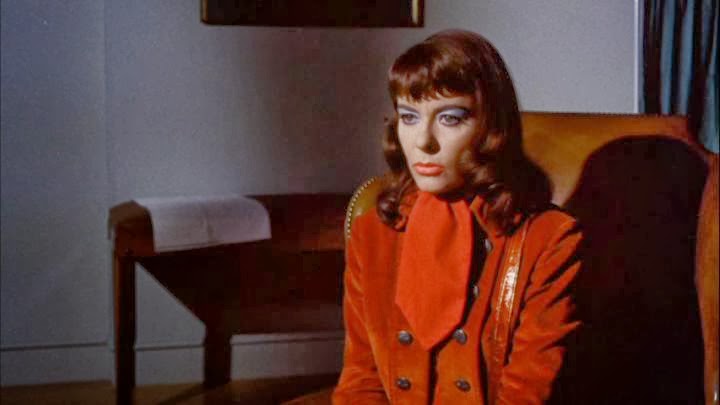
Wendy remains undeterred. She begins to pack up at home when flirty roommate Frank (Michael Coles) stops by and confronts her, grabbing and kissing her, unmasking her secret. What happens next is the nasty bit that I recall most about the movie, and while I won’t reveal it, suffice to say it’s cringe-worthy and not in the book. The final coda has Wendy with a complete sex change, and passport to prove it, staring at the photo of her mother and saying aloud, “I must always remember how lucky I am to be a girl.” The film has a dour, serious solemnity. No, it’s not the howler that The Christine Jorgensen Story (1970) is, or packed with as much shock value as Doris Wishman’s mondo-documentary Let Me Die A Woman (1978). However, Anne Heywood is rather unforgettable. At the time of the film’s release Kevin Thomas in the Los Angeles Times called the film “an excellent English drama on the agonizing predicament of the transsexual, and it stars Anne Heywood in a thoroughly remarkable performance, by far the best in her career.”
Ironically if Heywood were to choose to make this movie today there would be such a outcry because the part was not first offered to an actual transsexual. In today’s politically hot-button climate an actor is only allowed to stretch just so far. Soon only real hunchbacks will be allowed to play Richard III. Only proven morphine addicts can play Mary Tyrone in Long Day’s Journey Into Night. Only actual salesmen can dare play the lead in Death Of A Salesmen. And unless you are of Moorish descent don’t even think about playing Othello.

